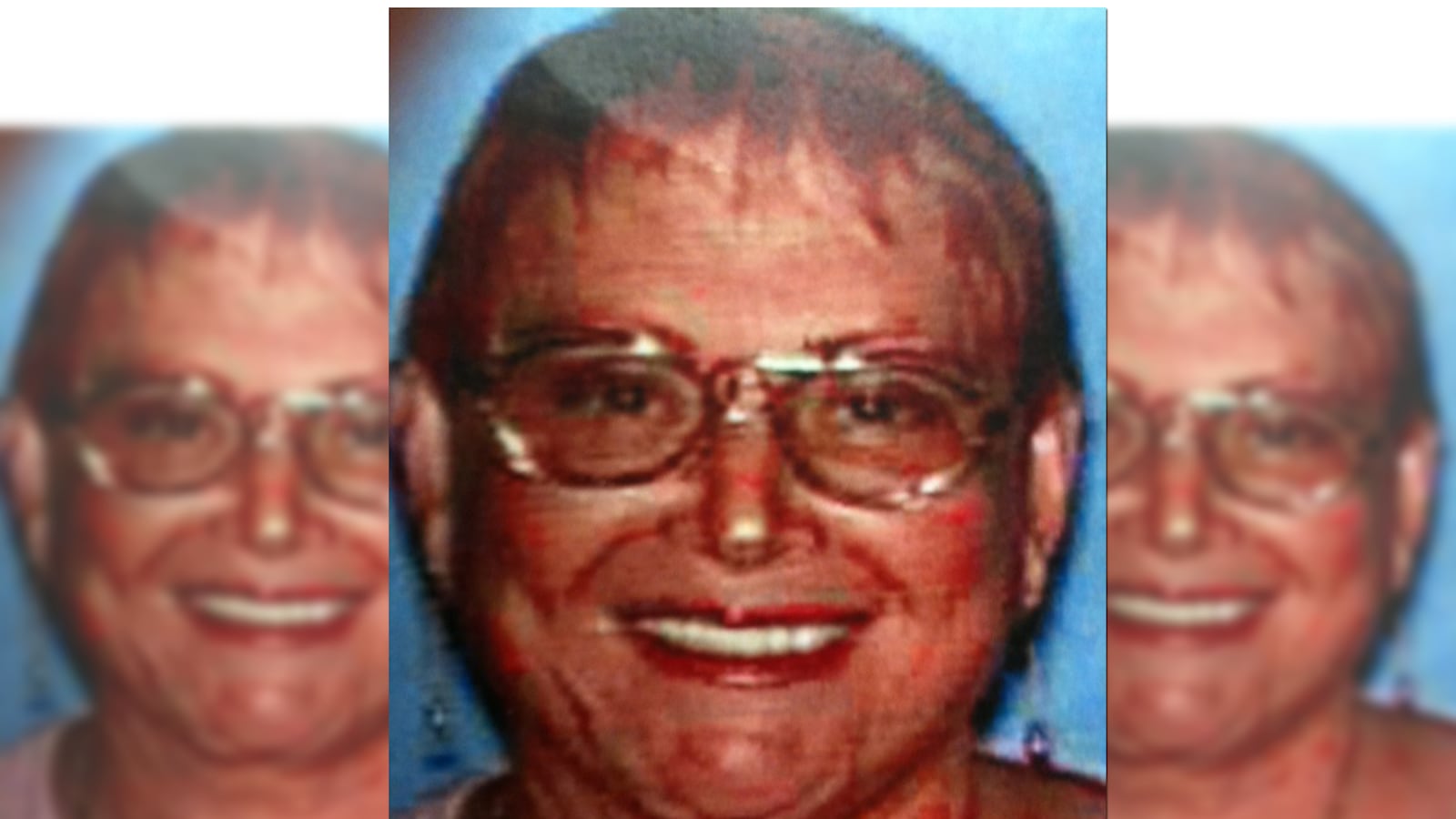From the beginning, things did not go smoothly. The day before the planned assault, the crew, which had been hired for $1,000, got lost. None of them had a cellphone, so they ended up at a corner store to get directions.

By the time it was all over, a 71-year-old man was dead, and the alleged mastermind behind the attack had incriminated herself in a series of police wiretaps.
At the center of the case is 65-year-old Peggy Hagiwara, a squat, gray-haired German immigrant who has previously spent time in prison—twice—for grand theft. She is accused of killing Manfred Karger, a building owner and landlord, after he caught on to her Ponzi scheme to defraud him of close to $100,000. Apparently fearful that he might contact the police and put her back behind bars, she set out to hire some muscle to rough him up. But he ended up dead.
During the trial, currently being played out in a Los Angeles–area courtroom, Hagiwara’s attorney Brock Hammond admitted that his client bumped off the elderly Austrian, but claimed that the killing was in self-defense. “We are disputing it was premeditated.”
When Hagiwara took the stand in her own defense, she alleged that Karger, whom she first met 30 years ago with his now deceased first wife at a German restaurant, had physically and verbally abused her since 2004.
While she sat in county jail, deputies found in Hagiwara’s car a “rat” manual that gave tips on how to undermine a witness who is going to testify against you, as well as a razor blade, which her lawyer claimed was going to be used to remove toe corns.
Karger, who lived alone in a suburb of Los Angeles with his two Chihuahuas, had been strangled and clobbered in the head 23 times with what appeared to be a tire iron on June 21, 2010. Police determined there was no forced entry, but his computer and watches were missing, and his safe was open. Also, there was plenty of blood at the scene, but no footprints, which led police to surmise that the killer or killers may have worn covers over their shoes.
It didn’t take long before detectives zeroed in on Hagiwara—a former registered nurse who lost her license in 1998 after her grand-theft convictions—after they discovered Karger’s last call was made to her at 8 a.m. on the day of his death. Detectives also spoke to Karger’s best friend, who told them that Karger was involved in a business dispute with a woman named Peggy, to whom he had lent money for a purported used-furniture business in exchange for a 50 to 100 percent return on his investment. But he never got paid.
When confronted by police, Hagiwara acknowledged she owed Karger money, but claimed that she paid him back in cash, and with interest, at a local Sizzler restaurant a few days before his death.
The following day, detectives tricked Hagiwara; they claimed they scoured the Sizzler’s surveillance tapes but saw neither Hagiwara nor Karger. Hagiwara then admitted she lied, but still denied killing him.
Meanwhile, during the investigation, detectives discovered that Hagiwara made numerous calls to an ex-con named Jennie Dilello, whom she met while in state prison, around the time of the murder. In October police began surreptitiously listening to the pair’s conversations and used a trick called “stimulating the wire” to get them to talk about the murder. Police called Dilello and asked some probing questions, hoping she’d then reach out to Hagiwara to share the information.
The ruse worked. “You need to keep your head straight,” Hagiwara was overhead saying to Dilello on the phone. “Tell police you don’t know what they are talking about ... For everything I’m going to take the fifth ... I’m going to dye my hair and ground some stuff and have it all ready in a capsule.”
After police confronted Dilello with the wiretaps, she agreed to wear a wire to snare Hagiwara and admit her role in the plot. Dilello told detectives that she was at home in Willits, California, on June 18, three days before the murder, when she received a phone call from Hagiwara, who claimed that Karger owed her money, and he was planning to skip town and move back to Austria without paying up. Hagiwara wanted to know if she knew anyone who could act as muscle.
Dilello contacted an acquaintance from Stockton named Ruben Williams, who agreed to find someone for $1,000. “She needed someone to scare him,” testified Williams, who was shackled and wearing a jail jumpsuit. “I had a couple of people in mind, but they weren’t available,” he said.
Ultimately Williams said he and his girlfriend stopped at a gas station, where they bumped into an old friend, Troya McCullough, who agreed to take the job and jumped into the car for the eight-hour journey from Stockton to Los Angeles.
About his friend, Williams said: “He’s not a coward. He’s not scared.”
Once in Los Angeles, Williams said they were welcomed into Hagiwara’s home, which she shared with her husband and son, with a lavish dinner that “looked like Thanksgiving.” After dinner, Williams said he was getting ready for bed when overheard a conversation between McCullough and Hagiwara in the kitchen, where she allegedly said: “I don’t care what happens to him. If he gets out of hand, you can hit him.”
Williams claimed he went into the kitchen and told them: “I don’t want anything to do with it.”
The following morning, said Hagiwara, who cried periodically on the stand, she and McCullough were having coffee when she received a call from Karger, who wanted to meet her. Since she was already in the neighborhood, she drove to Karger's house with McCullough and asked him to wait in the car. Once inside, she testified, Karger began to kick her repeatedly, and she screamed. Moments later, she said, McCullough ran inside and put Karger in a headlock. She remembered hitting Karger in the head once with a wrench she had in her purse, but didn't recall striking him 22 more times in the head or stealing his wallet.
However, McCullough gave a different version of events to Williams, according to his lawyer Omar Bakari. Bakari said that McCullough told Williams that he ran inside to help, but it was Hagiwara who beat and strangled Karger. (Last week, the judge ruled that lawyers could not question Williams in front of the jury about his conversation with McCullough because it was hearsay.) As of yet, it is unclear if McCullough will take the stand and tell his side of the story.
Back at Hagiwara's house, Williams testified that McCullough approached him in the living room and showed him a watch that was smudged with blood. Later, when he was getting ready to leave, Williams said that Hagiwara asked him to get rid of a wallet, a computer, and a bag of clothes. “I had no choice,” he said to police. “What else was I going to do?”
“If I go down, we are all going down,” Hagiwara allegedly said.
Over the course of a few days, Williams said he busted the computer, tossed the watch into an irrigation ditch, burned the wallet, and threw away the clothes, which included a bloody light green shirt and a pair of latex gloves.
McCullough, who is also on trial with Hagiwara, has denied any involvement in Karger’s killing. “There is no fingerprints or DNA attached to that crime scene,” said Bakari. McCullough was a victim of circumstance, he said.
The trial resumes Monday.






